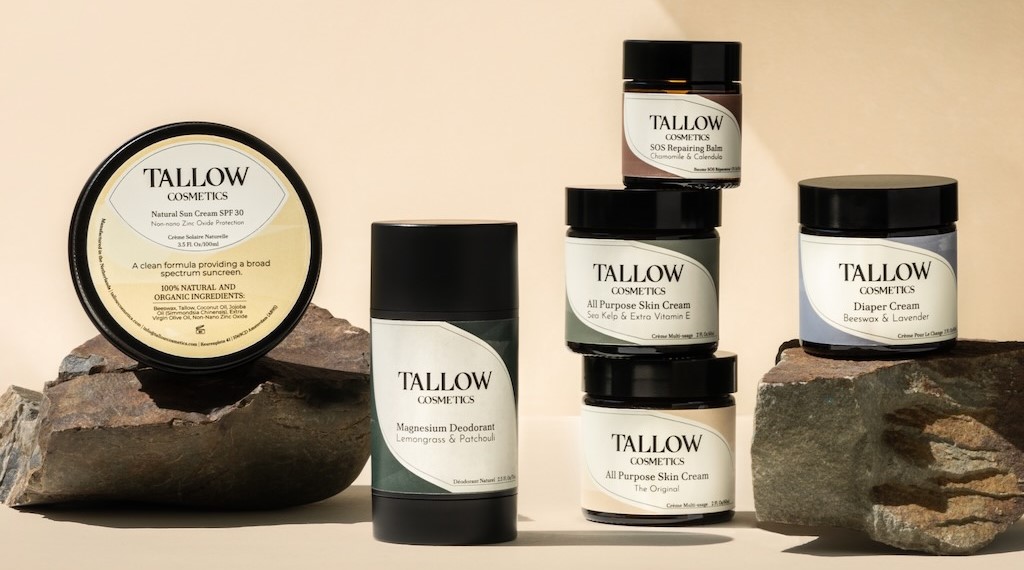Raw cassava flour - Cassava low carb, bez lepku, podporuje zažívání - 400 g

Za nákup Vám přičteme:
+199.75 Bodů do Bonusového programuCassava flour from Ceylon Kokonati is a great alternative to traditional tapioca flour and white highly processed flours with high carbohydrate content.
Thanks to its high content of resistant starch (a type of starch that bypasses digestion and has similar properties to soluble fibre), cassava can effectively fill you up. Consuming foods high in resistant starch can have several benefits for overall body function.
Cassava flour is made from the dried cassava root (including the skin), which is then ground into a very fine flour. The flour comes from a single source (single origin) and is packaged directly at the place of production.
Cassava flour has a neutral smell and taste. No chemical refining, additives or preservatives were used in its production to standardize the product.
What is a heirloom variety?
A so-called heirloom variety (whether of plants, seeds, fruits or vegetables) is an open-pollinated variety that was commonly cultivated in earlier times in human history, but is not used in modern large-scale agriculture because of the cartel-like behavior of a large corporation like Monsanto, which is behind the destruction of ancient seeds and the food chain in general across the planet.
See the document below. And here is a link to the website of a Canadian university, The University of British Columbia, which explains briefly what it is. If you do not speak English, use the online translator: deepl.com
We have translated this paragraph from the English Wikipedia:
Before the industrialisation of agriculture, a much wider variety of plant foods were grown for human consumption, mainly because farmers and gardeners saved seeds and cuttings for future planting. From the 16th century to the early 20th century, the diversity was enormous. The old nursery catalogues were full of plums, peaches, pears and apples of many varieties and the seed catalogues offered legions of vegetable varieties. These catalogues were used to sell and trade valuable and carefully selected seeds along with useful advice on growing.
Since the Second World War, agriculture in the industrialised world has consisted mainly of food crops grown on large monoculture plots. Only a few varieties of each type of crop are grown to achieve the greatest consistency. These varieties are often selected for their productivity and their ability to ripen at the same time and withstand mechanical harvesting and transport across borders, as well as their resistance to drought, frost or pesticides. This form of agriculture has led to a 75% decline in the genetic diversity of crops.
Although heirloom or heirloom cultivation has retained its place in local communities, it has seen a resurgence in recent years in response to the trend towards industrial agriculture. In the southern hemisphere, heirloom plants are still widely cultivated, for example in home gardens in South and Southeast Asia. Before the Second World War, most of the products grown in the United States were heirloom varieties, but this was abandoned with the arrival of Monsanto.
Other sources of articles:
The practice of Monsanto and BASF of Germany in pushing dicamba (a weed killer) on American farmers
The Guardian:Revealed: Monsanto predicted cropping system will damage US farms
In the 21st century, many communities around the world are working to preserve historic varieties so that a wide range of fruits, vegetables, herbs and flowers are once again available to growers by restoring old orchards, sourcing historic fruit varieties, engaging in seed swaps and encouraging community participation.
Recipe for healthy gluten-free pasta
(also suitable for paleo or low carb diet)
- 1 cup cassava flour
- 1 teaspoon sea salt
- 2 large eggs
- 2 tablespoons avocado oil
- 2+ tablespoons broth or water
Procedure
- Mix the flour and salt, mix well.
- Add the eggs, oil and stock to the dry ingredients and mix/knead until a smooth dough* is formed. I recommend using a stand mixer fitted with a dough hook.
- Wrap the dough in cling film and leave to rest at room temperature for 5 minutes. You can also store it in the fridge for up to 24 hours before rolling it out.
- Roll out the dough as needed for pasta, noodles or use it to make ravioli or lasagna or anything similar.
- Place the fresh pasta in salted boiling water and cook for about 5 minutes or until tender.
- Pour over the pasta and serve immediately with the sauce of your choice or add it to soup.
- Good taste.
Attention
Since it is impossible for each of us to have exactly the same size eggs or to measure out exactly the same flour (unless we weigh the ingredients), the following guidelines should be followed:
- If the ingredients don't come together into a smooth batter when you mix, add more stock (1/2 teaspoon at a time).
- If the dough is too sticky, add more cassava flour.
- The actual cooking time will depend on the thickness of your pasta.
Original recipe is translated from the blog: healthstartsinthekitchen.com/cassava-flour-pasta-dough-paleo-nut-free/

Ceylon Kokonati uses only single origin, ethically harvested non GMO ingredients for their products. Their products are vegan, gluten-free, suitable for keto, paleo and raw diets. They do not contain any refined white sugar.
By buying them, you support traditional livelihoods and reduce your carbon footprint - because the products are produced and packaged right at the harvest site. Ceylon Kokonati strives for 100% zero waste production.
This product is internationally accredited by Control Union, certified organic (EU and USDA NOP) - to be awarded in December 2022, the product is ISO and/or HACCP certified.
Ceylon Kokonati manufactures its products in a family-run sweatshop, pays fair prices to its suppliers and manufacturers, and incorporates generations of knowledge into its production processes. It uses only the highest quality ingredients. So you can be sure that you are getting premium quality at a premium price. By buying flour, you support the traditional livelihoods of villagers in the dry areas of Sri Lanka. This allows the villagers to benefit from their years of knowledge and expertise.
The sale of these products plays a vital role in employment and economic support for the village community. Ceylon Kokonati provides the children of its employees with school books and stationery for the entire school year.
Read more on this topic
Fruit flours I. - Breadfruit flour
Fruit flours II - Green banana flour
Gluten-free diet not only for celiacs?
Discover low carb or more energy, less sugar
What to eat in winter to stay healthy?
How to prevent Christmas overeating or mitigate its effects
Enhance your workout with the right and effective supplements
Additional parameters
| Category: | Flour |
|---|---|
| EAN: | 4796010581030 |
| Výrobce: | Ceylon Kokonati |
| Země původu: | Srí Lanka |
| Proč koupit: | Jediná ingredience, balena u zdroje, nikdy žádné příměsy, single-origin, GMO-free a vegan. Pokud máte alergii na lepek či ořechy nebo dodržujete určitou dietu, toto je mouka pro vás. |
| Vhodné pro: | Keto-Paleo-GMO Free-Vegan-Bezlepková dieta-LowCarb |
Be the first who will post an article to this item!
The Ceilon Kokonati brand was established in 2013. In its range you can find a variety of high quality and affordable products made from sustainably produced coconuts, spices and tropical fruits.
The brand's name refers to the country that its founders consider home, Ceylon, Sri Lanka, where the coconuts for the coconut line of products are grown and processed. Ceylon, a British Crown Colony from 1815-1948, is now known as Sri Lanka, but the founders of the brand prefer to call it Ceylon because it definitely sounds more exotic and "pure Ceylon" is a brand in itself, reminiscent of the fresh unique essence of pure Ceylon tea. "Kokonati" on the other hand is Maori for coconut, so absolutely the most appropriate brand name for the most coconutty goodness ever.
The Ceilon Kokonati brand is run by a married couple. The female founding half is Mrs. Bûmika, which means Lady of the Earth in Sanskrit. Her great-grandfather was one of the pioneers of coconut oil pressing in Ceylon, making her the fourth generation of coconut oil presser. The male founding half, Mr. Mosqi, in turn, is originally a pure Ceylon tea grower.
Ceylon Kokonati is wholly owned and operated in New Zealand. Loose products from Kokonati uses several ethical brands that produce clean, organic food and beauty products. By selling Kokonati products, rural communities and traditional livelihoods are supported. All their products are ethically harvested and there is almost no waste in their production. Each part of the coconut is used in the production of a different product. Kokonati products are single-ingredient, packaged directly at the source, never mixed, single-species, non-GMO and vegan.
With a passion for organic, regenerative farming, sustainability and collective partnerships, Kokonati products come only from small farms and mills in rural villages in Sri Lanka. Each Kokonati product is produced in a specialized mill that produces only that type of product. Quality is therefore the best it can be, and every step of production is backed by the experience and knowledge of many generations. Ceylon is blessed with an abundance of healthy, exotic fruits, nuts, herbs and spices.
Ceylon Kokonati follows the principles of balanced living - live and let live.
They're trying to keep everything in even better condition than when they found it..

.jpg)


























































.jpg)















